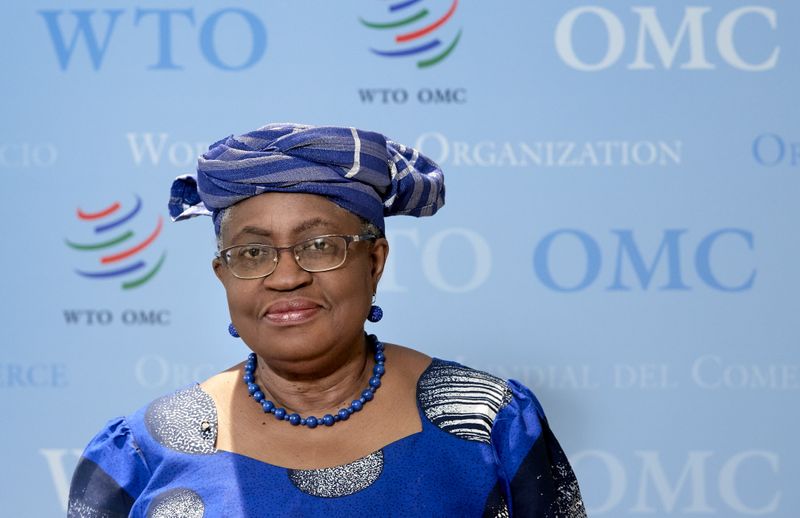GENEVA (Reuters) -The head of the World Trade Organization welcomed on Thursday the U.S. move to support waiving patent rights for COVID-19 vaccines and urged WTO members to start negotiations as soon as possible.
Director-General Ngozi Okonjo-Iweala told member states that she “warmly welcomed” U.S. willingness to engage with the proponents of the temporary waiver to the WTO’s TRIPS (Trade-Related Aspects of Intellectual Property Rights) Agreement.
“We need to respond urgently to COVID-19 because the world is watching and people are dying,” she said in a statement read by WTO spokesman Keith Rockwell after the closed-door meeting.
“I am pleased that the proponents are preparing a revision to their proposal and I urge them to put this on the table as soon as possible so that text-based negotiations can commence.”
After 10 meetings of WTO members failed to achieve a breakthrough, India and South Africa have said they will revise their waiver proposal before another discussion later in May and a formal meeting of the TRIPS Council on June 8-9.
The United States said on Wednesday it supported the waiver, although trade chief Katherine Tai cautioned that negotiations would take time.
“What exactly a final package will look like, I don’t know. Members will be discussing that intensively in the weeks and months to come,” Rockwell told reporters.
The WTO head wants to have an agreement on trade and health, including but not only the intellectual property rights issue, by the WTO’s ministerial conference on Nov. 30-Dec. 3.
The head of the European Commission, which oversees trade policy in the 27-country European Union, said on Thursday the bloc was willing to discuss a waiver proposal.
Until now, the EU has been with a group of countries, many of them home to large pharmaceutical companies, including Britain and Switzerland, that have opposed the waiver.
Drugmakers, who have produced coronavirus vaccines in record time, oppose the proposal, saying it could disrupt a stretched and fragile supply chain.
Okonjo-Iweala said that only by sitting down together could a solution be found acceptable to all – improving developing countries’ access to vaccines and protecting research and innovation vital to production of life-saving vaccines.
(Reporting by Philip Blenkinsop and Stephanie Nebehay; editing by Jonathan Oatis)





















